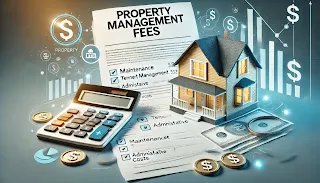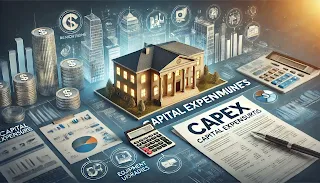The Hidden Costs of Real Estate Investing (And How to Avoid Them)
The Hidden Costs of Real Estate Investing (And How to Avoid Them)
Diving into real estate investing can be a great way to build wealth, but many investors tend to overlook those sneaky hidden costs that can really chip away at their profits. If you’re not ready for them, these expenses can turn what seemed like a golden opportunity into a financial headache. In this blog, we’re going to shine a light on those hidden costs of real estate investing and share some handy tips on how to steer clear of them.
1. Property Taxes
Property taxes can vary quite a bit depending on where you are, and they often creep up over time. A lot of investors underestimate this expense, which can lead to some serious financial stress.
How to Avoid It:
- Do your homework on tax rates before you buy.
- Look for areas that offer tax incentives.
- If you think your tax assessment is too high, don’t hesitate to appeal it.
2. Maintenance and Repairs
Owning a property means you’ll need to keep up with ongoing maintenance, from fixing leaky pipes to servicing the HVAC system. Those unexpected repairs can really add up in a hurry.
How to Avoid It:
- Set aside at least 1% of the property's value each year for maintenance.
- Make sure to conduct thorough inspections before you buy.
- Consider investing in a home warranty for some extra peace of mind.
3. Property Management Fees
While hiring a property manager can save you a lot of time, it does come with a price—usually around 8-12% of your rental income.
How to Avoid It:
- If you can, try managing the properties yourself.
- Don’t be afraid to negotiate those management fees.
- Take the time to screen tenants carefully to minimize turnover and maintenance issues.
4. Vacancy Costs
Having empty rental properties can really hurt your income, especially since you still have to pay for things like your mortgage and utilities.
How to Avoid It:
- Market your properties with enthusiasm.
- Set competitive rental prices.
- Build strong relationships with your tenants to keep them around longer.
5. Closing Costs
When it comes to closing costs, you’re looking at things like loan origination fees, title insurance, and legal fees, which can add up to about 2-5% of the property's price.
How to Avoid It:
- Shop around and compare lenders for the best deals.
- Negotiate with sellers to see if they can cover some of those closing costs.
- Partner with a knowledgeable real estate agent.
6. Capital Expenditures (CapEx)
Don’t overlook major expenses like replacing roofs or upgrading HVAC systems; they’re crucial for maintaining your property’s long-term value.
How to Avoid It:
- Set aside a CapEx fund specifically for those big repairs.
- Consider investing in newer properties that won’t need immediate repairs.
7. Insurance Costs
Regular home insurance might not cover all the risks you face, and adding extra coverage like flood or landlord insurance can drive up your costs.
How to Avoid It:
- Compare different insurance providers to find the best rates.
- Bundle your policies to snag some discounts.
- Look for properties in areas with lower risk.
8. Legal and Compliance Fees
As a landlord, you need to stay compliant with local laws regarding tenant rights and zoning regulations. Legal disputes can really drain your finances.
How to Avoid It:
- Keep yourself informed about landlord-tenant laws.
- Collaborate with a real estate attorney to ensure your contracts are solid.
- Use a lease agreement that safeguards your interests.
In Short
Hidden costs can really take a toll on your profits in real estate. By budgeting smartly, doing your homework, and using cost-saving strategies, you can boost your returns and avoid unexpected financial hits.
Interested in finding investment properties that come with fewer hidden costs? Let’s chat about your real estate goals!







Comments
Post a Comment